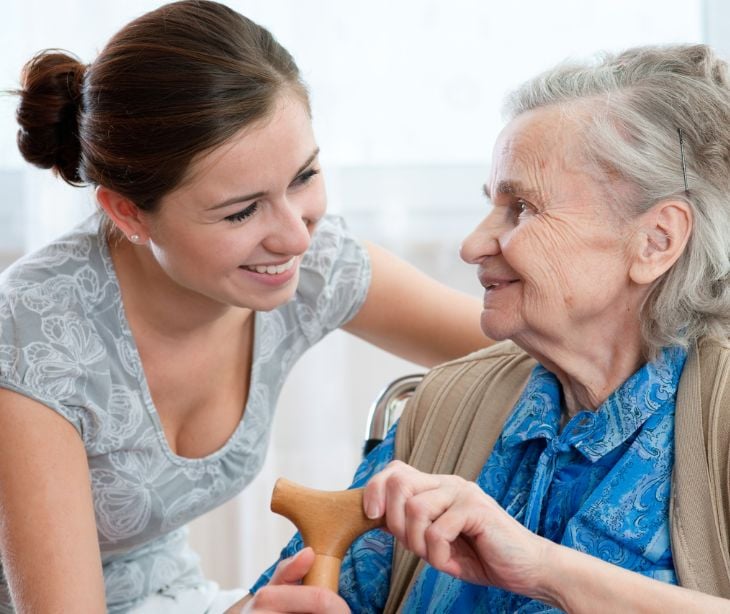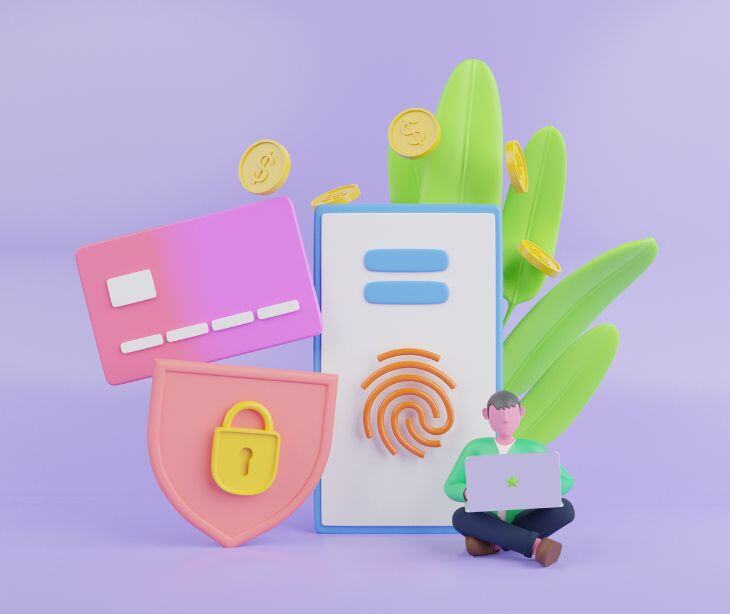
Text messaging can offer many benefits for homecare providers, including the ability to quickly and easily contact their patients. While convenient, there is the potential transmission of the patient's protected health information (PHI) which requires a HIPAA compliant form of text messaging.
Why should homecare providers make use of text messaging?
Homecare providers can use text messaging as a practical and efficient communication tool to exchange information. This serves to improve their patient treatment in a more informal and accessible way. By using secure messaging platforms, caregivers can ensure the confidentiality and security of sensitive health information while communicating with clients or their healthcare providers. Text messaging also provides a clear and documented communication trail, which can be valuable for legal and compliance purposes.
Related: The guide to HIPAA compliant text messaging
Uses of text messaging for homecare providers
- Medication reminders: Text messaging can be utilized to send medication reminders to clients, ensuring they take their prescribed medications on time.
- Care plan updates: Text messaging allows homecare providers to share updates regarding the client's care plan. This includes information on any changes in medication, treatment instructions, or specific care requirements.
- Emergency notifications: In case of emergencies, homecare providers can send urgent notifications via text messaging. This includes alerting family members or emergency services about critical situations, such as falls, accidents, or sudden changes in the client's health.
- Caregiver shift communication: Text messaging can facilitate communication among caregivers during shift changes.
- Family communication: Homecare providers can use text messaging to inform family members about the client's well-being, progress, or notable events.
- Remote monitoring and support: Text messaging allows homecare providers to remotely monitor clients' health and well-being.
- Reporting and documentation: Homecare providers can use text messaging to document information, such as client observations, care-related incidents, or specific tasks performed.
- Feedback: Text messaging allows homecare providers to collect feedback from clients or their families. This helps assess the quality of care provided and identify areas for improvement.
- Coordination with healthcare professionals: It enables homecare providers to communicate with healthcare professionals involved in the client's care.
HIPAA and text messaging
HIPAA requires healthcare providers to implement appropriate safeguards to protect the confidentiality and availability of PHI. When using text messaging, providers must ensure that measures are in place to secure the transmission and storage of PHI. Furthermore, both HIPAA and HITECH emphasize the use of secure messaging platforms for text messaging in healthcare. These platforms should have encryption mechanisms in place to protect PHI during transmission and should also comply with other security standards outlined by HIPAA.
Related: The basics of HITECH and how it works with HIPAA
Steps to ensure HIPAA compliant text messaging for homecare providers
- Use secure messaging apps: Utilize HIPAA compliant messaging apps or platforms that offer encryption for communication with clients, their family members, and healthcare professionals. These apps provide an extra layer of security for protecting PHI during transmission.
- Obtain consent and authorization: Obtain written consent from clients or their legal representatives before sharing their PHI through text messaging. Clearly explain the purpose, scope, and potential risks, and document their consent or authorization.
- Password-protect devices: Set strong passwords or passcodes on your mobile devices, such as smartphones or tablets, to prevent unauthorized access. Use a unique and complex password that is not easily guessable.
- Be cautious with public WiFi: Avoid using public WiFi networks for accessing or transmitting PHI. Public WiFi networks are often unsecured and can expose your data to potential threats. Consider using a virtual private network (VPN) for added security.
- Use secure cloud storage: If you store PHI in the cloud, ensure you use a HIPAA compliant cloud storage service.
- Implement remote device management: Consider implementing a remote device management solution that allows you to remotely wipe data from your devices in case of loss or theft. This feature ensures that unauthorized individuals cannot access any PHI stored on the device.
- Alternative methods of communication: Make use of alternative methods of communication to send and receive information and documentation of a more sensitive nature. A widely used and effective method for this is HIPAA compliant email.
Handling requests to delete PHI
When handling requests to delete or modify text messages containing sensitive health information, it is necessary to follow proper procedures. The request should be carefully assessed to determine its legitimacy and alignment with organizational policies and legal obligations. Validating the identity and authority of the requester is required to ensure proper authorization.
If the request is legitimate and compliant with internal guidelines, secure methods should be employed to delete or modify the specified text messages. Also, remember to communicate the outcome to the requester and ensure they feel comfortable handling their data. Retaining documentation is vital for evidentiary and auditing purposes.
Other legislation and homecare providers
Family Educational Rights and Privacy Act (FERPA)
FERPA protects the privacy of student educational records. Home caregivers who work with minor clients in educational settings should be aware of FERPA regulations regarding the disclosure and communication of student records with educational institutions and parents.
Mandatory reporting laws
In many jurisdictions, home caregivers are mandatory reporters in cases of suspected child abuse, elder abuse, or abuse of vulnerable adults. For instance, the Child Abuse Prevention and Treatment Act (CAPTA) sets forth reporting requirements for child abuse or neglect. Home caregivers must comply with state laws that define their role as mandated reporters and outline the reporting procedures to follow in such cases.
Professional codes of ethics
Home caregivers are often guided by professional codes of ethics specific to their field. For example, the American Nurses Association (ANA) has a code of ethics that provides principles and standards for nursing practice. This code emphasizes the necessity of maintaining confidentiality, respecting patient autonomy, and ensuring effective and ethical communication with patients and their families.
Subscribe to Paubox Weekly
Every Friday we'll bring you the most important news from Paubox. Our aim is to make you smarter, faster.




